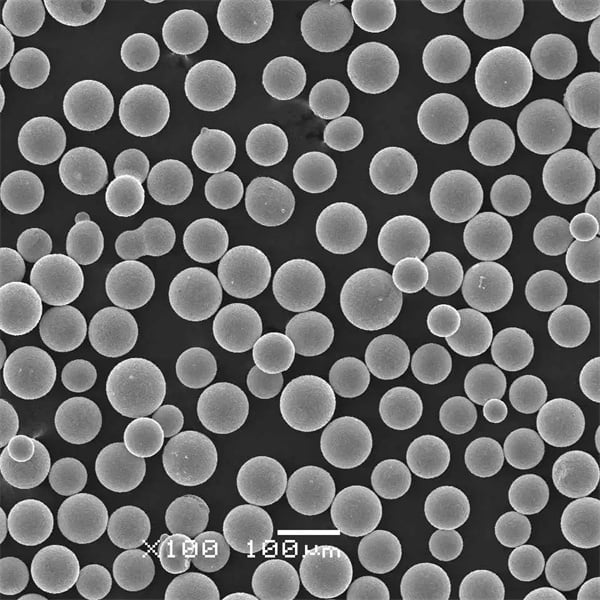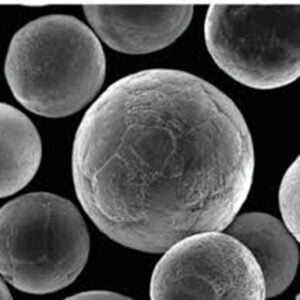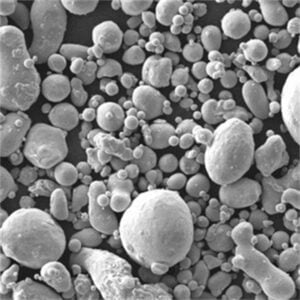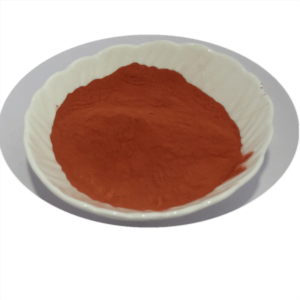Overview of Metal Binder Jetting
メタル・バインダー・ジェット (MBJ) is an advanced additive manufacturing technique that offers significant advantages over traditional metalworking processes. By using a binder to adhere metal powder particles, this method builds complex and precise metal parts layer by layer. The process is known for its high-speed production, cost efficiency, and ability to create intricate geometries that are difficult or impossible to achieve with conventional manufacturing methods.
主な特徴
- 精度が高い: Achieves high levels of detail and complexity.
- 効率が良い: Faster production times compared to traditional methods.
- 汎用性がある: 幅広い金属と合金に適している。
- 費用対効果: Reduces material waste and overall production costs.
In this comprehensive guide, we’ll delve into the specifics of Metal Binder Jetting, including types of metal powders used, their compositions, applications, and detailed comparisons. We’ll also explore the advantages and disadvantages of the process, providing insights to help you decide if Metal Binder Jetting is right for your manufacturing needs.

金属粉末の種類 メタル・バインダー・ジェット
The choice of metal powder is critical in determining the properties and performance of the final product. Here are some commonly used metal powders in Binder Jetting:
1. Stainless Steel (316L)
構成: 鉄、クロム、ニッケル、モリブデン
プロパティ 高耐食性、優れた機械的特性
アプリケーション Medical implants, aerospace components, marine environments
2. Stainless Steel (17-4 PH)
構成: Iron, Chromium, Nickel, Copper, Niobium
プロパティ High strength, good corrosion resistance, heat treatable
アプリケーション Aerospace, chemical processing, medical instruments
3.インコネル 625
構成: ニッケル、クロム、モリブデン、ニオブ
プロパティ High strength, excellent fatigue resistance, corrosion-resistant
アプリケーション 航空宇宙、海洋、化学処理
4.インコネル 718
構成: Nickel, Chromium, Iron, Niobium, Molybdenum, Titanium
プロパティ High yield strength, good creep resistance, corrosion-resistant
アプリケーション Aerospace engines, gas turbines, cryogenic tanks
5. Aluminum (AlSi10Mg)
構成: アルミニウム、シリコン、マグネシウム
プロパティ Lightweight, good thermal properties, corrosion-resistant
アプリケーション Automotive, aerospace, consumer goods
6. Titanium (Ti-6Al-4V)
構成: チタン、アルミニウム、バナジウム
プロパティ 高い強度対重量比、優れた耐食性
アプリケーション Aerospace, medical implants, automotive racing
7. Copper (C18150)
構成: 銅、クロム、ジルコニウム
プロパティ High electrical and thermal conductivity, good mechanical properties
アプリケーション Electrical components, heat exchangers, welding electrodes
8. Tool Steel (H13)
構成: Iron, Carbon, Chromium, Molybdenum, Vanadium
プロパティ High toughness, heat-resistant, wear-resistant
アプリケーション 金型、切削工具
9. Cobalt-Chrome (CoCrMo)
構成: コバルト、クロム、モリブデン
プロパティ High wear resistance, biocompatible, corrosion-resistant
アプリケーション 医療用インプラント、歯科補綴物、航空宇宙部品
10. Tungsten (W)
構成: タングステン
プロパティ Very high density, excellent hardness, high melting point
アプリケーション Aerospace, military, radiation shielding
Applications of Metal Binder Jetting
Metal Binder Jetting is employed across various industries due to its flexibility and efficiency. Here are some notable applications:
| 産業 | 申し込み | Metal Powders Commonly Used |
|---|---|---|
| 航空宇宙 | Engine parts, turbine blades, structural components | Inconel 625, Inconel 718, Titanium (Ti-6Al-4V) |
| 自動車 | Lightweight parts, custom components, prototyping | Aluminum (AlSi10Mg), Stainless Steel (316L) |
| メディカル | Implants, surgical tools, dental prosthetics | Stainless Steel (316L), Cobalt-Chrome (CoCrMo) |
| エレクトロニクス | Heat sinks, connectors, circuit board components | Copper (C18150), Aluminum (AlSi10Mg) |
| 工具 | 金型、切削工具 | Tool Steel (H13), Tungsten (W) |
| マリン | Corrosion-resistant components, propellers, pumps | Stainless Steel (316L), Inconel 625 |
| 消費財 | Jewelry, custom-designed products, decorative items | Stainless Steel (316L), Titanium (Ti-6Al-4V) |
仕様と規格
To ensure quality and performance, metal powders used in Binder Jetting must meet specific standards and specifications. Here’s a detailed look:
| 金属粉末 | 粒子径 | 純度 | 規格 |
|---|---|---|---|
| ステンレススチール(316L) | 15-45 µm | ≥ 99% | A240, ISO 5832-1 |
| ステンレススチール(17-4 PH) | 15-45 µm | ≥ 99% | ASTM A564, AMS 5604 |
| インコネル625 | 15-45 µm | ≥ 99% | ASMB443、AMS5666 |
| インコネル718 | 15-45 µm | ≥ 99% | ASMB637、AMS5662 |
| アルミニウム (AlSi10Mg) | 20-63 µm | ≥ 99% | ASTM F3318 |
| チタン(Ti-6Al-4V) | 20-45 µm | ≥ 99% | ASTM F2924, AMS 4911 |
| Copper (C18150) | 15-45 µm | ≥ 99% | ASTM B152, AMS 4500 |
| 工具鋼(H13) | 15-45 µm | ≥ 99% | ASTM A681, AMS 6431 |
| コバルトクロム(CoCrMo) | 15-45 µm | ≥ 99% | ASTM F75、ISO 5832-4 |
| タングステン(W) | 10-45 µm | ≥ 99% | ASTM B777, AMS 7890 |
Advantages of Metal Binder Jetting
Metal Binder Jetting brings several advantages to the table, making it a preferred choice in various industries.
High Production Speed
Compared to traditional manufacturing methods and even other 3D printing techniques, MBJ is significantly faster. The ability to produce parts quickly is a game-changer, especially in industries where time is a critical factor.
コスト効率
One of the most compelling benefits of MBJ is its cost efficiency. By minimizing material waste and reducing the need for expensive tooling and molds, MBJ can lower overall production costs. This makes it an attractive option for both prototyping and full-scale production.
複雑な幾何学
MBJ can create intricate and complex geometries that would be difficult or impossible to achieve with conventional methods. This capability opens up new possibilities for design and innovation.
素材の多様性
MBJ is compatible with a wide range of metal powders, from stainless steel to titanium, offering flexibility in material choice based on the specific requirements of the application.
スケーラビリティ
Whether you need a single prototype or mass production of thousands of parts, MBJ can scale to meet the demand. This scalability is essential for industries that require rapid iteration and development.
Disadvantages of Metal Binder Jetting
Despite its many advantages, Metal Binder Jetting also has some limitations that need to be considered.
後処理の要件
Parts produced with MBJ often require significant post-processing, such as sintering, infiltration, and finishing, to achieve the desired properties and surface finish. This adds time and cost to the production process.
限定された材料特性
While MBJ is compatible with a variety of metals, the properties of the final parts may not always match those produced by traditional methods. For instance, the density and mechanical strength of MBJ parts might be lower.
表面仕上げ
The surface finish of MBJ parts can be rough, requiring additional machining or polishing to meet the required specifications. This can be a drawback in applications where surface quality is critical.
Binder Residue
Residual binder material can sometimes remain in the parts, affecting their performance and quality. This issue needs careful management during the production process.
高額な初期投資
The initial cost of setting up a Metal Binder Jetting system can be high, making it less accessible for smaller companies or startups. However, the long-term savings in production costs can offset this investment.
Comparing Metal Binder Jetting with Other Manufacturing Methods
How does Metal Binder Jetting stack up against other manufacturing techniques? Let’s compare.
| 特徴 | メタル・バインダー・ジェット | 選択的レーザー焼結(SLS) | ダイレクトメタルレーザー焼結(DMLS) | CNC加工 |
| 生産スピード | 高い | ミディアム | ミディアム | 低い |
| コスト効率 | 高い | ミディアム | 低い | ミディアム |
| 複雑な幾何学 | 高い | 高い | 高い | 低い |
| 素材の多様性 | 高い | ミディアム | 高い | 高い |
| 表面仕上げ | ミディアム | 高い | 高い | 高い |
| 後処理 | 必須 | 最小限 | 最小限 | 最小限 |
| 初期投資 | 高い | ミディアム | 高い | 高い |
Top Suppliers and Pricing Details
Finding the right supplier is crucial for obtaining quality metal powders for Binder Jetting. Here’s a list of top suppliers and their pricing details:
| サプライヤー | 金属粉末 | kgあたりの価格 | 最小注文数量 | 所在地 |
|---|---|---|---|---|
| ヘガネスAB | ステンレススチール(316L) | $50 | 10キロ | スウェーデン |
| GKNアディティブ | インコネル625 | $200 | 5 kg | アメリカ |
| サンドビック | チタン(Ti-6Al-4V) | $300 | 2 kg | スウェーデン |
| カーペンター・テクノロジー | 工具鋼(H13) | $100 | 5 kg | アメリカ |
| LPWテクノロジー | アルミニウム (AlSi10Mg) | $70 | 10キロ | 英国 |
| ケナメタル | タングステン(W) | $500 | 1 kg | アメリカ |
| エラスティール | コバルトクロム(CoCrMo) | $250 | 3 kg | フランス |
| AP&C (Arcam) | チタン(Ti-6Al-4V) | $280 | 3 kg | カナダ |
| アルカムEBM | インコネル718 | $220 | 5 kg | スウェーデン |
| テクナ | ステンレススチール(17-4 PH) | $60 | 10キロ | カナダ |
よくあるご質問
メタル・バインダー・ジェットとは?
Metal Binder Jetting is an additive manufacturing process that uses a binding agent to adhere metal powder particles, creating parts layer by layer.
What metals can be used in Metal Binder Jetting?
A wide range of metals can be used, including stainless steel, titanium, aluminum, Inconel, copper, tool steel, and more.
What are the advantages of Metal Binder Jetting?
Advantages include high production speed, cost efficiency, ability to create complex geometries, material versatility, and scalability.
What are the disadvantages of Metal Binder Jetting?
Disadvantages include the need for post-processing, potential limitations in material properties, rough surface finish, binder residue, and high initial investment.
How does Metal Binder Jetting compare to other methods?
Compared to other methods like SLS, DMLS, and CNC machining, MBJ offers faster production speeds, higher cost efficiency, and greater flexibility in creating complex geometries.
What industries benefit from Metal Binder Jetting?
Industries such as aerospace, automotive, medical, electronics, tooling, marine, and consumer goods benefit from MBJ due to its versatility and efficiency.
What is the cost of metal powders for Binder Jetting?
The cost varies by metal type and supplier but generally ranges from $50 to $500 per kilogram.
Are there any environmental benefits to Metal Binder Jetting?
Yes, MBJ reduces material waste and can be more energy-efficient than traditional manufacturing methods, contributing to more sustainable production practices.
結論
Metal Binder Jetting is revolutionizing the manufacturing landscape with its ability to produce high-quality, complex metal parts efficiently and cost-effectively. Whether you’re in aerospace, automotive, medical, or another industry, understanding the specifics of this technology can help you make informed decisions and leverage its benefits to stay competitive in the market.


















